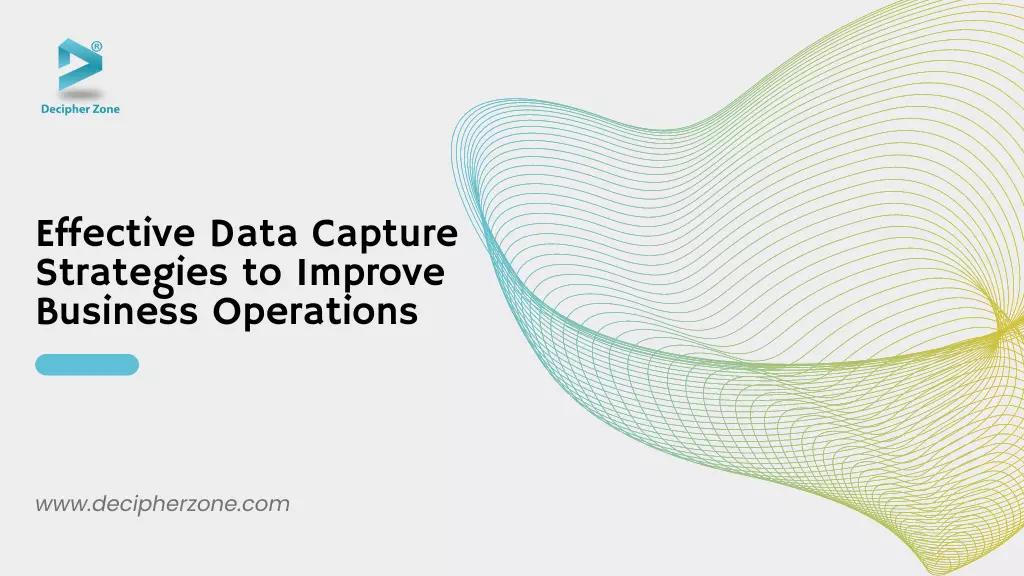Data capture is a crucial process that organizations must undertake to streamline their business operations.
With the increasing volume and complexity of data, it has become imperative to adopt effective data capture strategies that enable businesses to capture and process data in a timely and efficient manner.
In this article, we explore the different data capture strategies that businesses can adopt to improve their overall operations.
Introduction
The process of data capture involves extracting and digitizing data from various sources and storing it in a structured format for further analysis and use.
Read: Business Intelligence Software Development
In today's business environment, the ability to capture, process, and analyze data effectively is critical to success. With data being generated at an exponential rate, businesses need to adopt efficient and effective data capture strategies to keep up with the pace.
Types of Data Capture Strategies
There are different data capture strategies that businesses can adopt depending on their specific needs and requirements.
Read: Software Integration on Business Processes
Here are some of the most effective data capture strategies:
1. Change Data Capture (CDC)
Change Data Capture (CDC) is a data integration technique that captures changes made to the data in real-time. CDC helps to identify and track changes made to specific data sets, providing real-time insights into the data.
CDC allows businesses to capture changes made to databases, applications, and other data sources, ensuring that all data is up-to-date and accurate.
2. Optical Character Recognition (OCR)
Optical Character Recognition (OCR) is a technology that converts scanned images and PDFs into machine-readable text. OCR helps to automate data entry processes, eliminating the need for manual data entry.
Read: Custom Web Application Development for Business
OCR is particularly useful in industries that deal with large volumes of physical documents, such as healthcare and finance.
3. Intelligent Character Recognition (ICR)
Intelligent Character Recognition (ICR) is an advanced version of OCR that recognizes handwriting and cursive script. ICR helps to automate the data entry process even further, reducing the need for manual intervention.
Read: Healthcare Business Ideas
ICR is particularly useful in industries that deal with handwritten forms, such as insurance and legal.
4. Robotic Process Automation (RPA)
Robotic Process Automation (RPA) is a technology that automates repetitive and manual tasks. RPA helps to automate data entry processes, reducing errors and increasing efficiency.
Read: Software Tools for Your Business
RPA can be used to automate tasks such as data entry, data validation, and data extraction, among others.
Benefits of Effective Data Capture Strategies
Effective data capture strategies offer several benefits to businesses, including:
-
Improved data accuracy and quality
-
Increased efficiency and productivity
-
Real-time data insights
-
Reduced manual intervention and errors
-
Cost savings and ROI
Conclusion
Effective data capture strategies are essential for businesses that want to stay competitive and agile in today's fast-paced business environment.
By adopting the right data capture strategies, businesses can improve their operations, reduce errors, and gain real-time insights into their data.
Change Data Capture (CDC), Optical Character Recognition (OCR), Intelligent Character Recognition (ICR), and Robotic Process Automation (RPA) are some of the most effective data capture strategies that businesses can adopt to streamline their operations and improve their overall efficiency.

